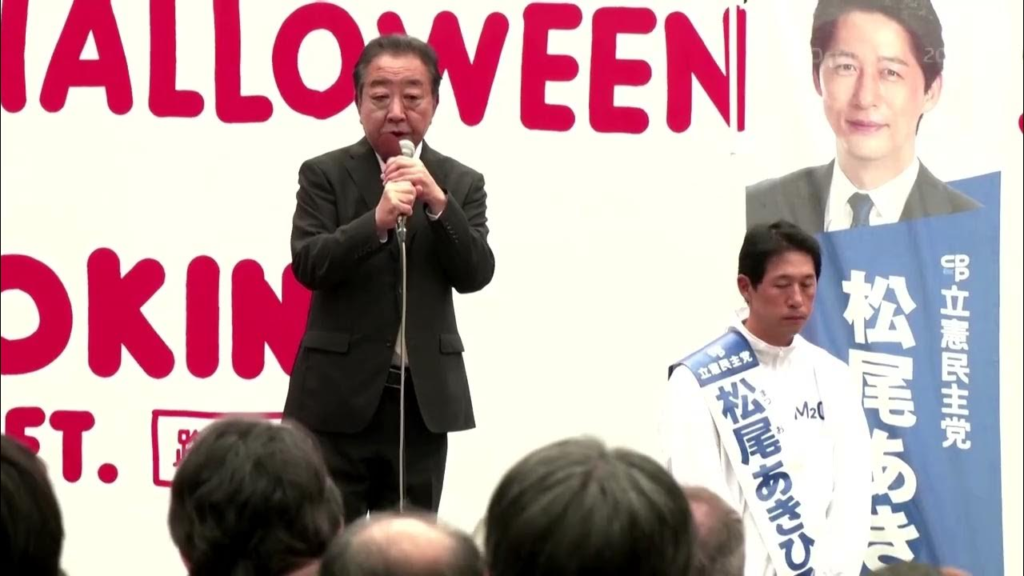Japan’s political landscape has entered a transformative phase, with implications for governance, economic stability, and the future of the Liberal Democratic Party (LDP) under Prime Minister Shigeru Ishiba.
The recent parliamentary elections have left the ruling coalition, comprised of the LDP and its partner Komeito, without a majority for the first time since 2009. This election outcome signals both public discontent over political scandals and a pivotal moment in Japan’s political alignment.
As various opposition parties maneuver for influence and coalition possibilities are considered, Japan stands on the cusp of a potential government shift that could reshape its domestic and foreign policies.
Election Setback: Scandals and Public Dissatisfaction
The unexpected loss of majority support for the LDP coalition is rooted in a growing public mistrust following a series of scandals. The failure to disclose donations by party members revealed last year cast a significant shadow on the LDP’s credibility.
As Prime Minister Ishiba attempted to mitigate the damage by calling an early election, it became apparent that Japanese voters were unwilling to overlook these issues, even as Ishiba took measures to distance the party from tainted members by barring certain lawmakers involved in the scandal from running as LDP candidates. This miscalculated gamble has underscored the challenges faced by the LDP as it seeks to regain public confidence.
The scandal’s impact was far-reaching, with some LDP candidates forced to run as independents and others expelled. This disjointed approach contributed to the coalition’s failure to secure the necessary 233 seats in the lower house of parliament, achieving only 215 in total alongside Komeito.
Read : Cats Outnumber Humans in Tashirojima Island of Japan
The main opposition, the Constitutional Democratic Party of Japan (CDP), capitalized on this discontent, securing 148 seats and emerging as a formidable contender for leadership. The shift in seats indicates not only the public’s frustration but also a yearning for political reform and transparency, which opposition parties have promised to prioritize.
Economic Impact and Market Response
The coalition’s loss of majority status has had immediate economic repercussions, with the Japanese yen falling to a three-month low and stocks rising in anticipation of increased government spending. The expectation of a new government, potentially more inclined toward fiscal stimulus to bolster the economy, has fueled a short-term surge in market activity.
Economists predict that any coalition government will need to prioritize economic recovery, considering the challenges posed by global economic uncertainties, particularly in the wake of fluctuating international trade dynamics and market instability tied to the upcoming U.S. presidential election.
With the Bank of Japan (BOJ) contemplating the timing of its next rate hike, the election results have added a layer of complexity. BOJ policymakers are expected to maintain a cautious approach, especially as they assess the potential for further market instability.
Read : Imperial Palace Japan: A Glimpse into the Heart of Japanese Royalty
The current economic landscape places pressure on the central bank to address Japan’s need for sustained growth without exacerbating market volatility.
The LDP’s policy setbacks also prompt discussions about the country’s economic future, including questions around fiscal consolidation, tax policies, and support for regional development, which have been central to Ishiba’s agenda.
Potential Coalition and Political Maneuvering
The coming weeks will determine the shape of Japan’s next government, as coalition possibilities are explored within parliament. Under Japan’s constitution, a special session of parliament must be convened within 30 days of a general election to elect the prime minister.
If no single candidate receives a majority, a runoff will be held between the top two candidates. This structure adds an element of uncertainty, as coalition-building will be necessary to secure a stable government.

Prime Minister Ishiba’s position remains precarious, as his leadership was recently established following a narrow victory in the LDP’s internal leadership contest. The possibility of coalition-building is not straightforward for the LDP, as potential partners may impose conditions, such as policy concessions on tax cuts and welfare spending, which could conflict with the LDP’s conservative fiscal approach.
Additionally, the historical context of coalition failures, notably in 1993 when the LDP lost power after a coalition formed by opposition parties crumbled within a year, serves as a cautionary tale for today’s political actors. It remains unclear whether the LDP will find willing partners among the opposition or be left to face a potentially unstable legislative future.
As Japan’s opposition leaders and minor parties make calculated moves to gain influence, the nation faces a period of intense political negotiation. For voters, the election has set a new precedent, underscoring their power to effect change and hold the ruling party accountable.
For the LDP, it is a wake-up call to address transparency issues, adapt to public demands, and potentially make policy adjustments that reflect the electorate’s concerns.
The outcome of these negotiations will shape not only Japan’s immediate political landscape but also its approach to economic recovery, social welfare, and international relations in the years to come.
let’s enjoy few years on earth with peace and happiness….✍🏼🙏

